How to get paint off concrete – a step-by-step guide to clean up patios, walls and floors
The experts reveal their top tips as well as everything you'll need to complete the task
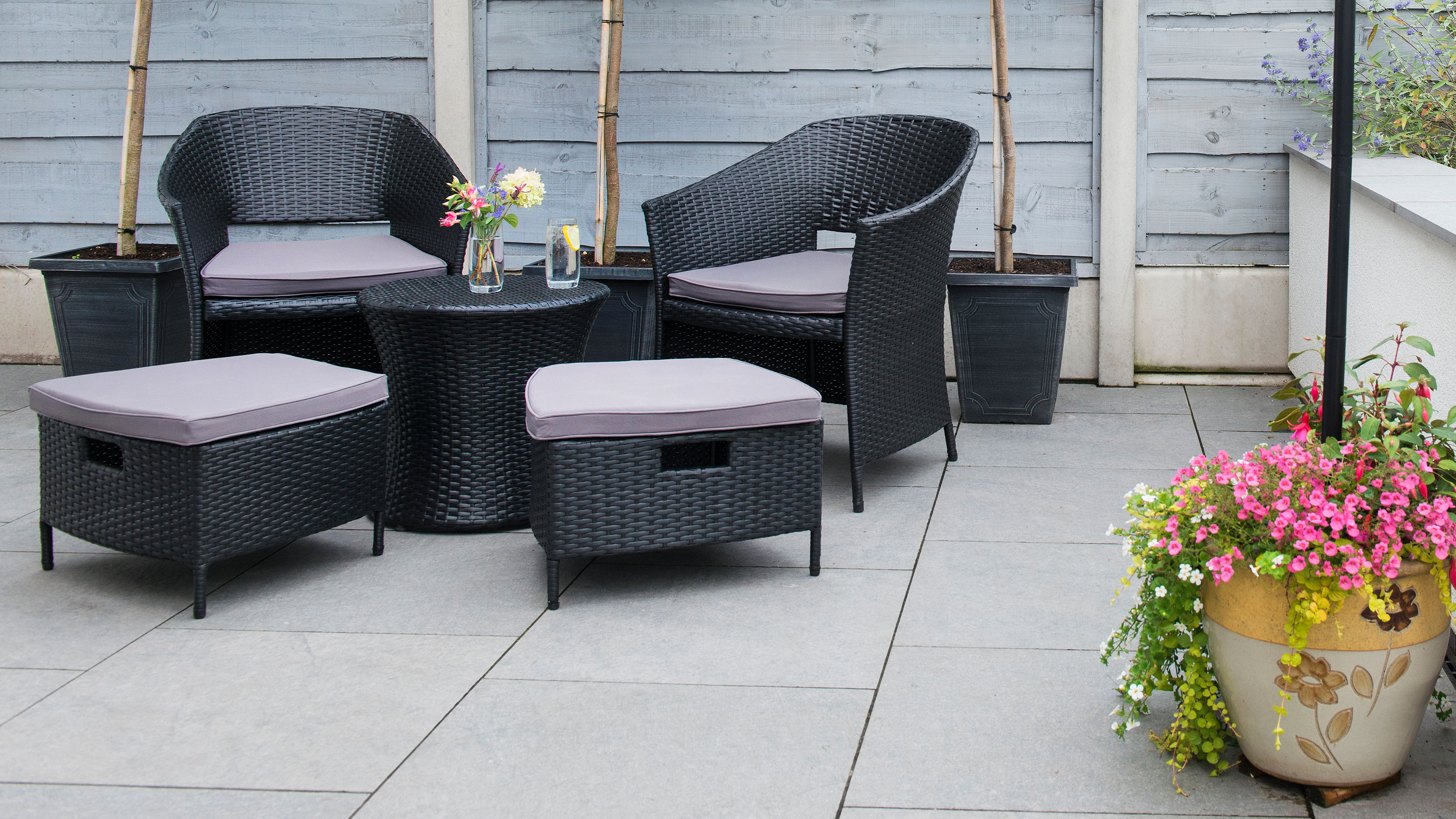

Whether you’ve just moved into your new home and want to start with a blank slate on concrete floors or/and walls, or you’ve accidentally knocked over some paint onto your concrete patio, there will probably come a time when you’re wondering how to get paint off concrete. And thankfully there are a few different ways to tackle this task.
If you've spilt paint over your concrete patio idea cleaning it up is definitely something you can do yourself instead of having to get in the professionals. But you do need to take some care and precautions when doing so.

Depending on the amount of paint and how difficult it might be to remove it, there are typically four ways to get paint off concrete. For smaller areas, you might get away with using a scraper or brush to lift it but you do need to be careful ‘as it can discolour the concrete,’ warns Adkwik's DIY Expert, Tim Warren.
Sometimes a simple bit of sanding can help too but you need to ensure that you’re wearing a protective mask of some kind to stop you from inhaling any of the ensuing dust. Another method that you might have already heard of is soda blasting. However, because this often requires professional equipment and quite a bit of skill to operate it correctly, this might be one best left for the experts.
So, it’s no surprise that the most popular way to remove paint from concrete is with a paint stripper of some kind, particularly if the paint is dried in. The type of paint stripper you use will depend on the type of paint. Although, in most cases a general paint stripper should do exactly what it says on the tin, especially if you’ve just moved into your property and have no idea what kind of paint was originally used on the concrete.
However, in somecases you might be best painting over the whole area ‘for larger tasks, such as removing paint from an entire concrete surface such as a wall or garage floor, you could also consider painting over the affected area rather than full removal,’ suggests Jimmy Englezos, Senior Brand Manager at Ronseal.
1. Prepare the area
Before you get started, it’s important to clear away any items of outdoor furniture, debris such as leaves or moss and potted plants. Alternatively, if you’re looking to remove paint from a basement or concrete wall indoors, you’ll want to temporarily relocate any items that you might have been storing there.
If you are working indoors, ‘ensure that the area has appropriate ventilation before using any chemicals to remove the paint,’ Tim instructs. While you might not need to worry too much about ventilation if working outdoors, you will want to wear a few protective items to keep you fully protected, namely a mask and some goggles.
And ‘as well as ensuring that the working area is well ventilated, you should cover any nearby items that can't be moved or any surfaces that you do not want to damage, either by using painter's tape or plastic sheets,’ Tim says.
2. Do a quick clean
While a good brush should have gotten rid of most of the debris, Tim also recommends ‘cleaning the painted area using a cleaning solution mixed with warm water.’ Depending on how dirty it is, you can either use a sponge or a wire brush to make sure that you’ve removed anything which might be coating the concrete.
Essentially, ‘this helps to remove any debris that can act as a barrier and prevent the remover from coming into contact with the paint,’ he reveals. You could also use a pressure washer on a low setting to lift anything that won’t brush or scrub away.
Once you’ve cleaned the area to the best of your abilities, remember to let it dry fully before moving onto the next step. So, this might be something to do early in the morning or the day before you want to try removing the paint, in order to give it enough time to dry out.

3. Apply a paint stripper and let it sit
Then it’s time to apply the paint stripper. You should first ‘read the manufacturer's guidelines to see how it is best applied, how long it should be left to break down the paint and how it should be rinsed off,’ Tim says. Ideally, you will want to apply an even coat of the paint stripper to the concrete using a paintbrush.
You will need to give the solution time to soften the paint. Basically, the longer that you can leave it, the more time it has to get to work on removing the paint effectively. There really is no point in rushing it as this might mean that you need to repeat the entire process again, which will take even more time in the long run.
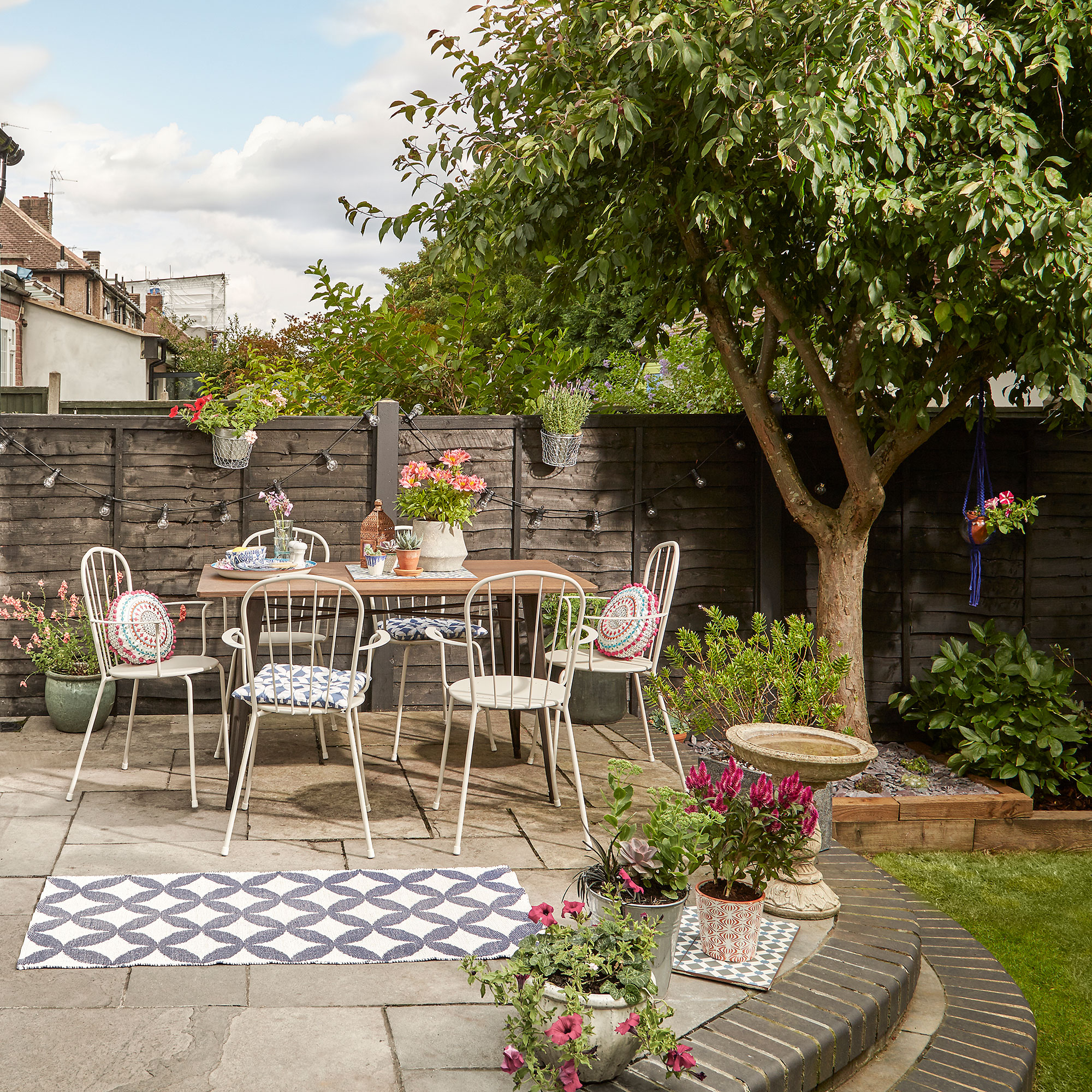
4. Remove the paint
Again, each paint stripper’s guidelines may vary, so be sure to check these for how to best rinse off the paint stripper and paint underneath. It may be that you can use a scraper or brush, while you can often also ‘use a hose or power washer to rinse away the paint residue,’ Loren Taylor, Owner of Outdoor Fountain Pros, adds.

5. Repeat if necessary
‘If you were unable to get rid of all the paint, reapply the paint thinner and allow it to sit and break down the paint again,’ Tim recommends. ‘This will loosen any remaining paint so that you can remove it with the pressure washer, a wire brush or some steel wool.’
A lot of this process involves patience and a bit of waiting around but once it’s complete you’ll be glad that you took the time to do it.
What you'll need
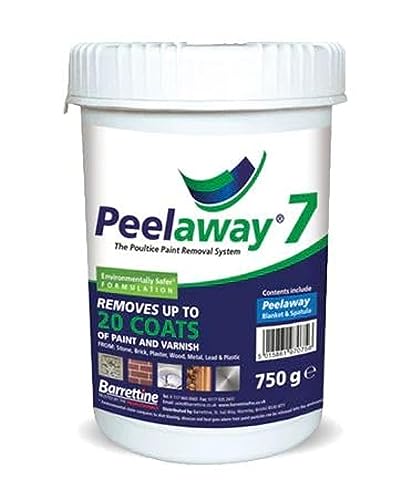
This particular paint stripper not only works on concrete but can also remove paint from wood, brick, stone, metal and plaster.
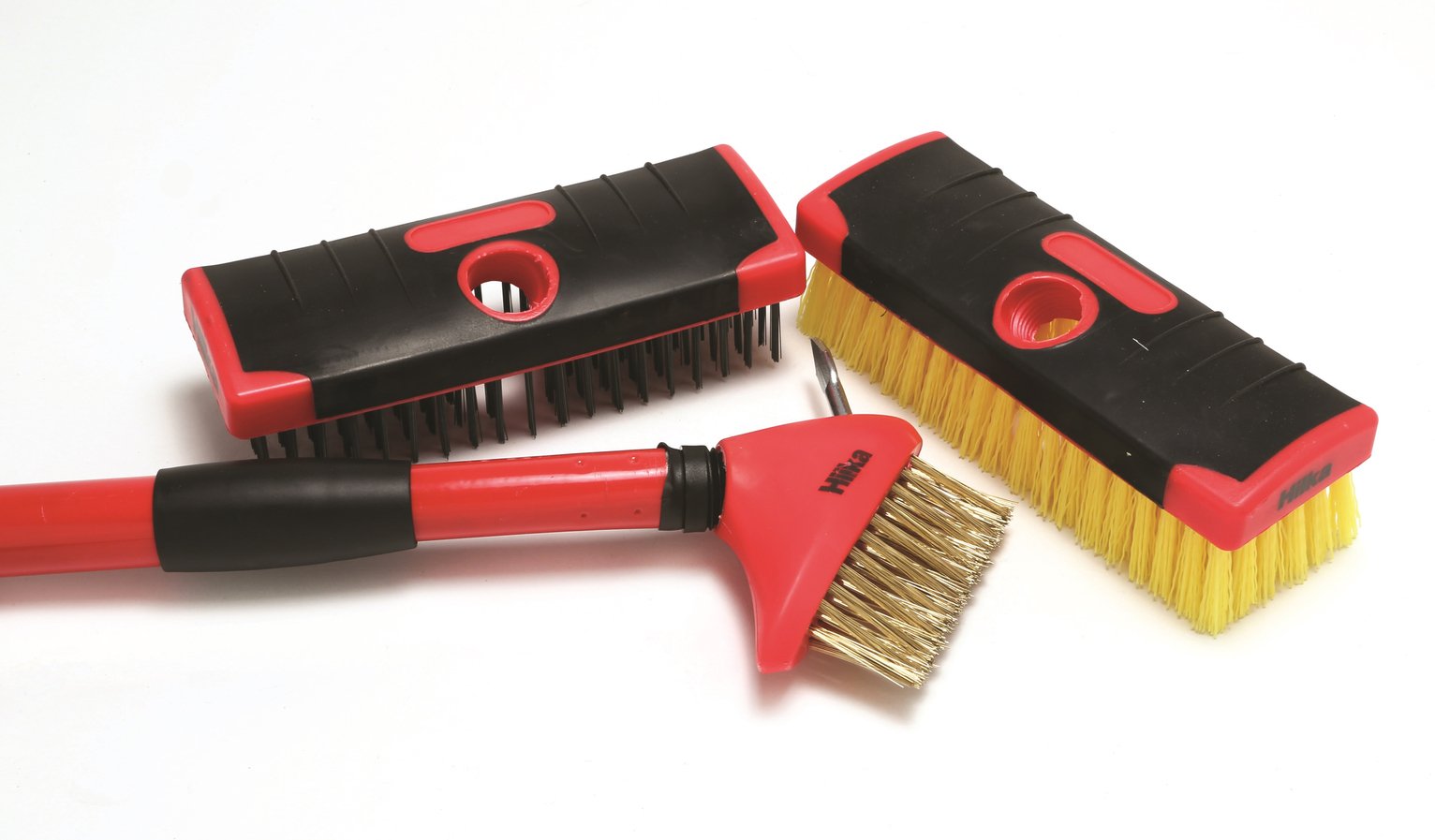
This handy brush set comes with interchangeable heads to essentially give you a scrub brush, steel wire brush and heavy duty scraper in one product. It also makes storing it much easier than having to find space for three separate brushes.
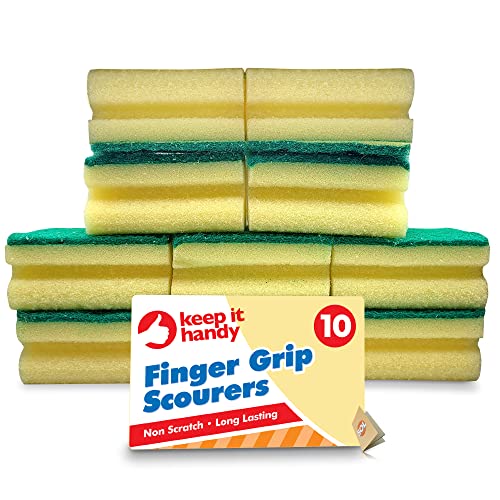
Some paint might lift away with some scrubbing and this kind of sponge is ideal for that. The softer side can be used to clean up the area afterward, as well.
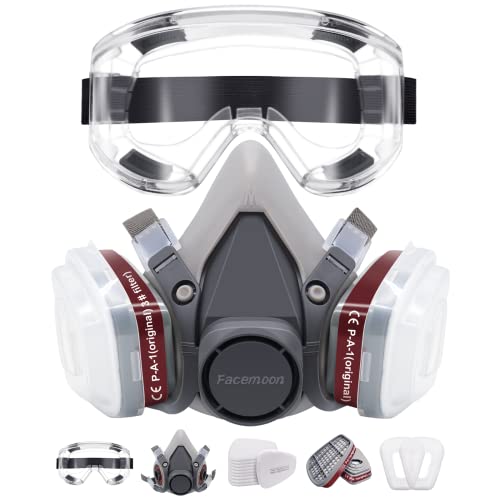
Before you even think about picking up some paint stripper, it's important to protect yourself from any fumes or dust that could be inhaled. This is a fantastic kit to have in your arsenal.
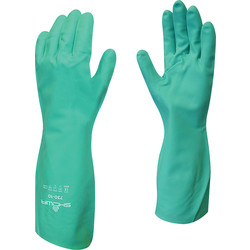
And you don't want to get any chemicals on your skin either, which is why these chemical resistant gloves are a great investment, particularly if you have any other DIY projects planned for the future.
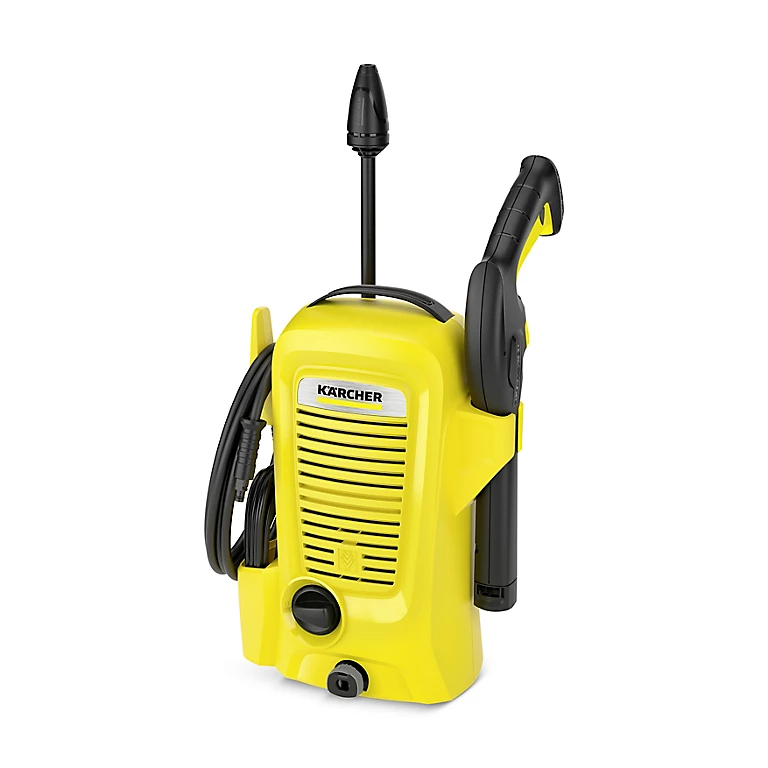
Even though most of the experts admit that a pressure washer is optional for getting paint off concrete, this one won't take up a lot of space and is one of the best pressure washers that we've put to the test.
FAQs
How do you remove dried paint from concrete?
As you might expect, it can be tougher and require a bit more elbow grease to remove dried paint from concrete compared to a spillage of wet paint that hasn’t had a chance to dry yet.
All of the steps and tips above will allow you to remove dried paint from concrete and will allow you to see the original concrete underneath once more.
Will vinegar remove paint from concrete?
Despite the fact that white vinegar can come in handy when cleaning other areas of our homes, vinegar will only really work on fresh paint, with it helping to loosen or soften the paint instead of removing it, the experts agree.
Loren explains, ‘while vinegar is a mild acid and can sometimes help loosen paint, it's not my go-to for paint removal from concrete. Even though it might work on very fresh paint, for most situations, a commercial paint stripper will be much more effective.’
Get the Ideal Home Newsletter
Sign up to our newsletter for style and decor inspiration, house makeovers, project advice and more.

Ellis Cochrane has been a Freelance Contributor for Ideal Home since 2023. Ellis has been writing about homes, interiors and gardens for four years now, with her also contributing to House Beautiful, Country Living, Expert Reviews, Real Homes and Stylist.
-
 Wood drenching is the calming new twist on the colour drenching trend – here’s how to make the look work in your home
Wood drenching is the calming new twist on the colour drenching trend – here’s how to make the look work in your homeIt’s easier than ever to embrace natural materials
By Maddie Balcombe
-
 Aldi is launching a £200 day bed with four different features - its sleek design is suited to the whole family
Aldi is launching a £200 day bed with four different features - its sleek design is suited to the whole familyYou don't want to miss out on this Specialbuy
By Kezia Reynolds
-
 How to set up a drip watering system that saves water and a lot of effort
How to set up a drip watering system that saves water and a lot of effortKeep your plants hydrated (and your water bill down) with this clever garden watering solution
By Natalie Osborn
-
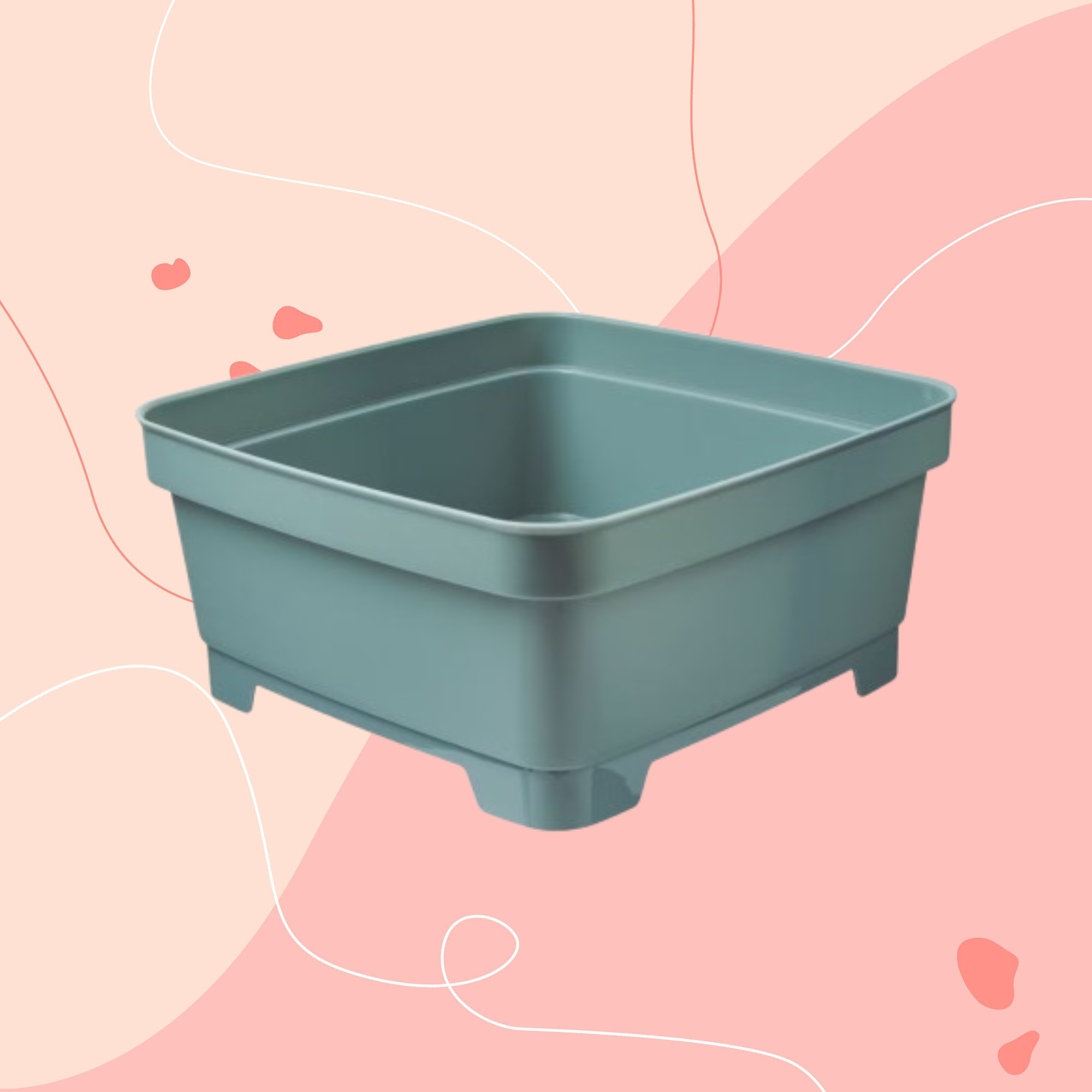 Aldi is releasing a budget alternative to the cult Joseph Joseph washing up bowl – it’s just £4.99
Aldi is releasing a budget alternative to the cult Joseph Joseph washing up bowl – it’s just £4.99The Joseph Joseph washing up bowl is an Ideal Home favourite - now we can't wait to try Aldi's alternative
By Kezia Reynolds
-
 I just bought my first home, and this £10 buy was the very first thing I bought for it to make it feel warmer and secure
I just bought my first home, and this £10 buy was the very first thing I bought for it to make it feel warmer and secureIf I did it all again, this would still be my very first buy
By Rebecca Knight
-
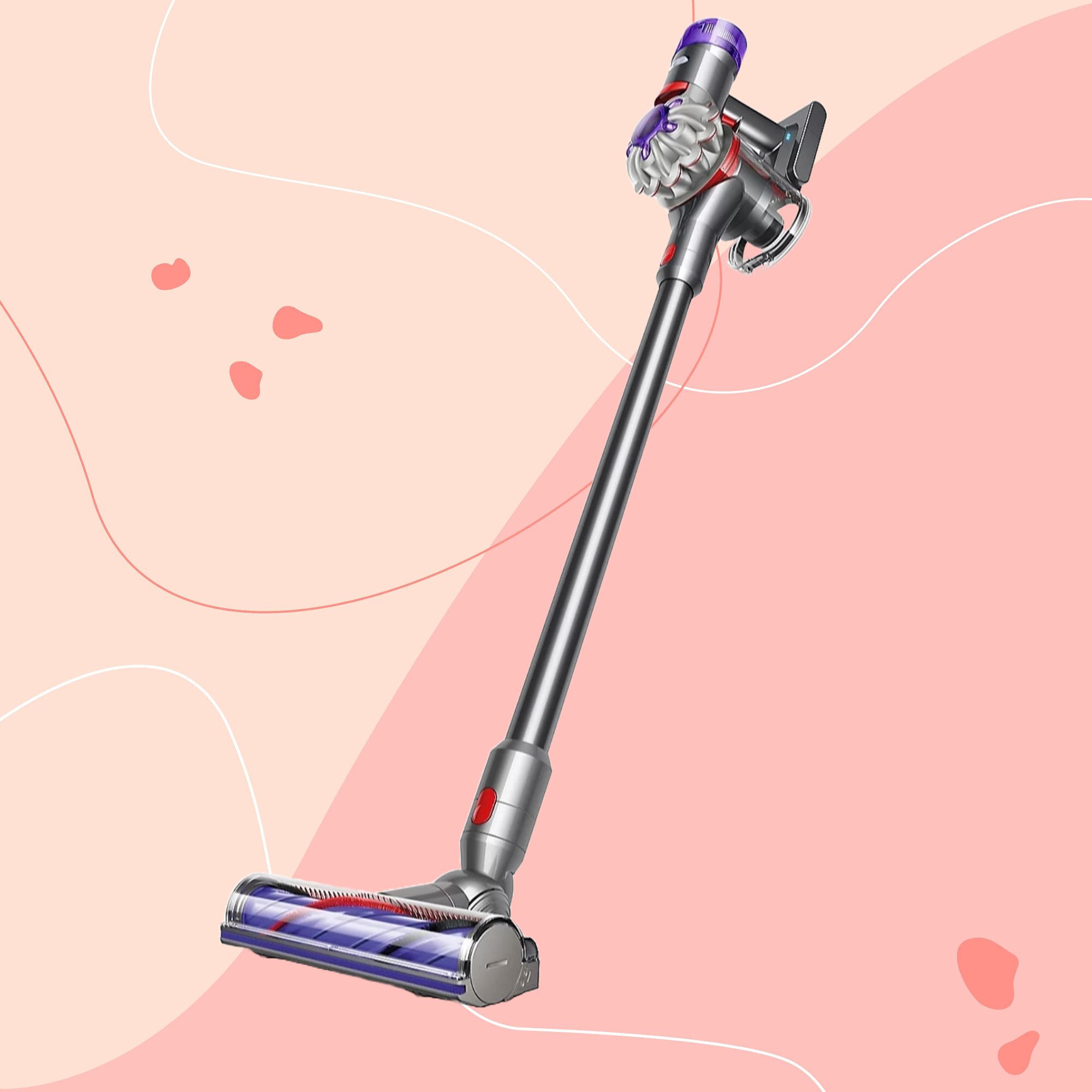 It’s normally impossible to find a Dyson vacuum for under £250 — but QVC has slashed the price of their bestselling models for a limited time
It’s normally impossible to find a Dyson vacuum for under £250 — but QVC has slashed the price of their bestselling models for a limited timeRun don’t walk to pick up the brand’s bestselling model for under £230 before it sells out
By Lauren Bradbury
-
 Catherine Zeta-Jones has revealed the cleaning product she swears by to keep her home fresh - and it’s just £8 on Amazon
Catherine Zeta-Jones has revealed the cleaning product she swears by to keep her home fresh - and it’s just £8 on Amazon'I use it on my counters. I use it on my walls. I use it on my doors. When I smell it, I know my house is clean.'
By Kezia Reynolds
-
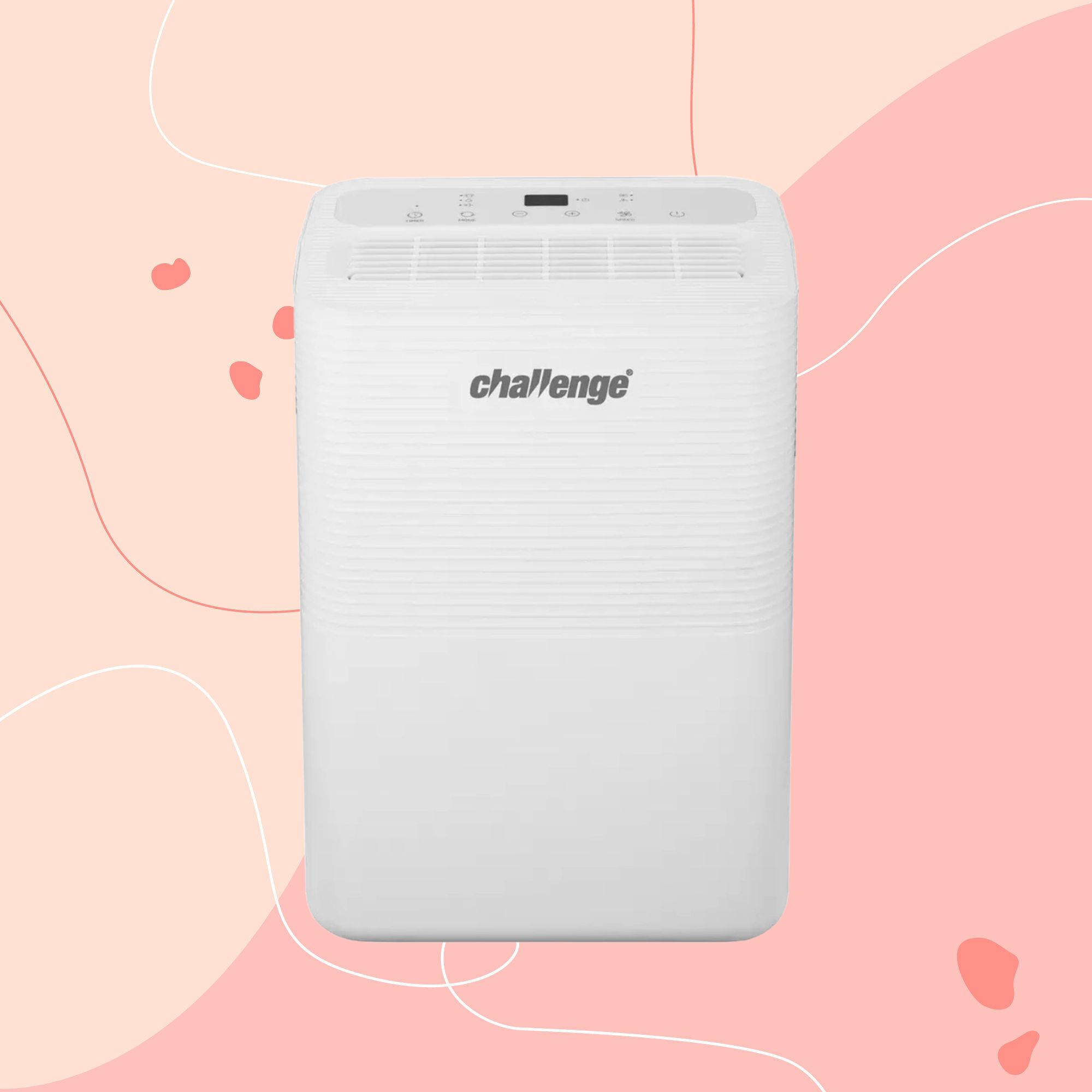 I tested the 12L Challenge dehumidifier in my damp Victorian home over winter — I haven’t spotted any signs of mould for the first time in five years
I tested the 12L Challenge dehumidifier in my damp Victorian home over winter — I haven’t spotted any signs of mould for the first time in five yearsThe Challenge 12L dehumidifier doesn’t have too many bells and whistles, but I can already see the difference it’s made to my damp home
By Lauren Bradbury
-
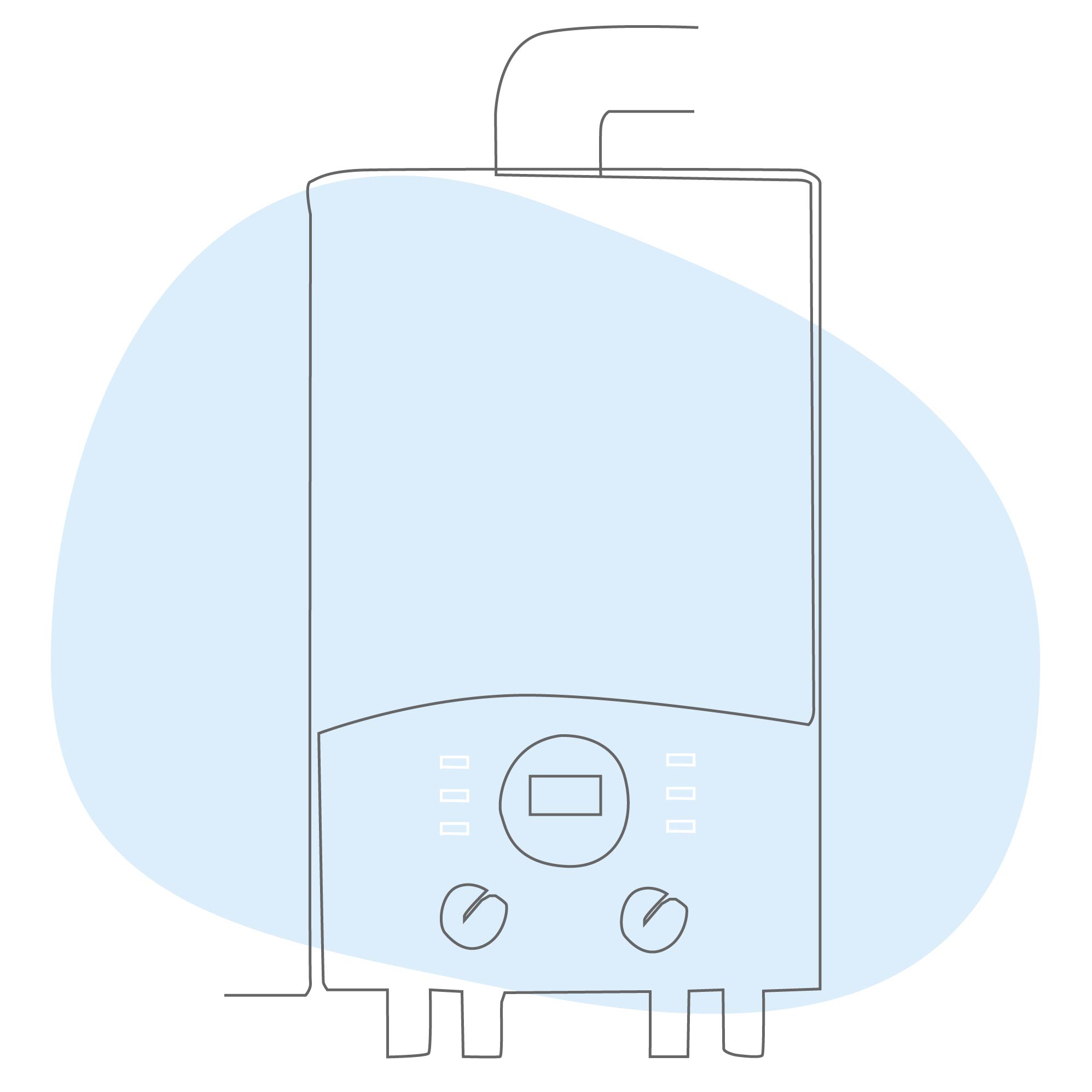 What is boiler flow temperature? Heating experts urge you to check yours now as you could be overpaying on your energy bills
What is boiler flow temperature? Heating experts urge you to check yours now as you could be overpaying on your energy billsTurning this little-known number down just a few degrees can result in some serious savings
By Lauren Bradbury
-
 Stacey Solomon has shared 5 nifty wardrobe storage hacks to make getting ready in the morning easier — and they're genius
Stacey Solomon has shared 5 nifty wardrobe storage hacks to make getting ready in the morning easier — and they're geniusThese five wardrobe storage hacks are a gamechanger
By Katie Sims
-
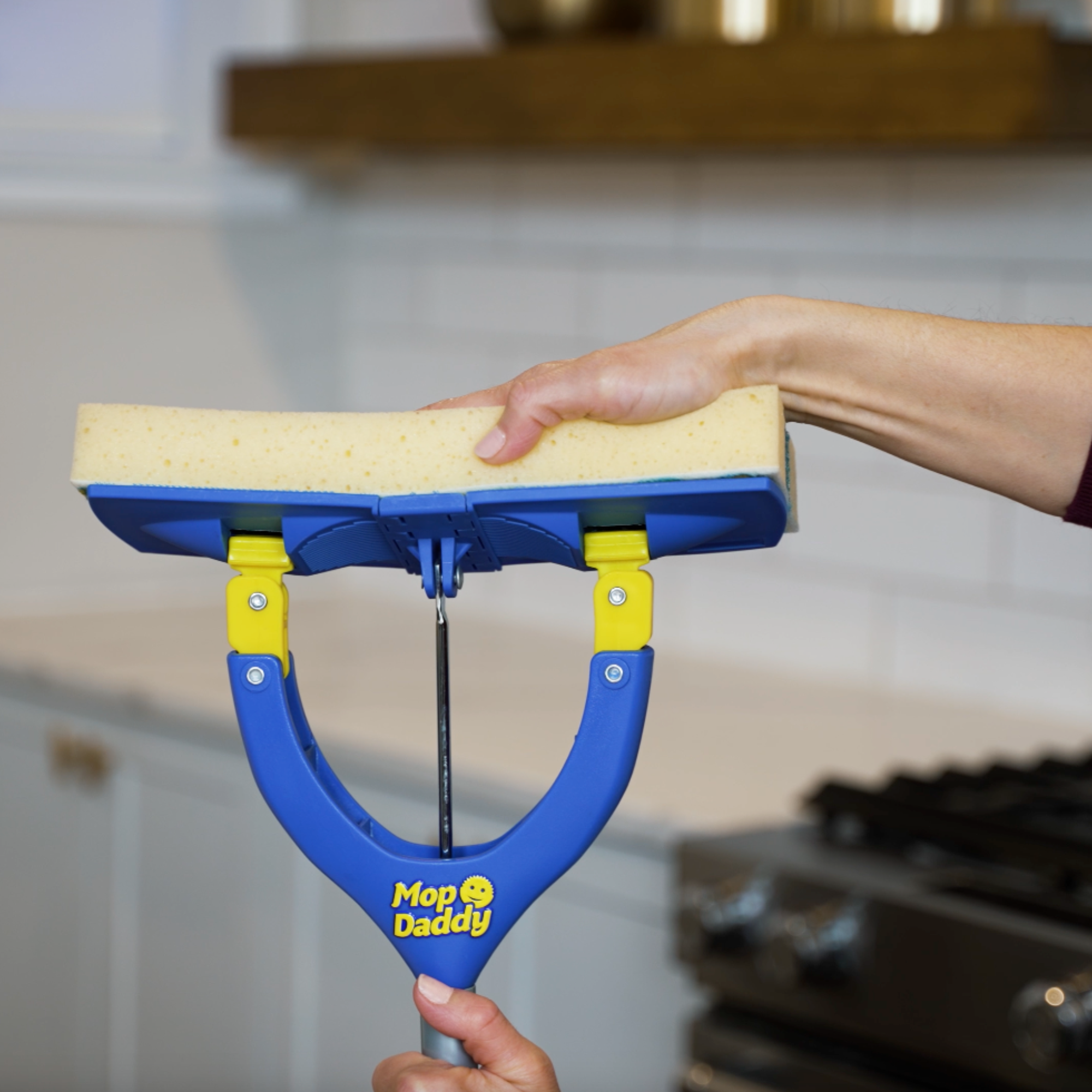 Cult cleaning brand Scrub Daddy has just launched a brand new butterfly mop — could it be the ultimate solution for banishing stubborn marks on your floor?
Cult cleaning brand Scrub Daddy has just launched a brand new butterfly mop — could it be the ultimate solution for banishing stubborn marks on your floor?We're obsessed with all things Scrub Daddy
By Kezia Reynolds